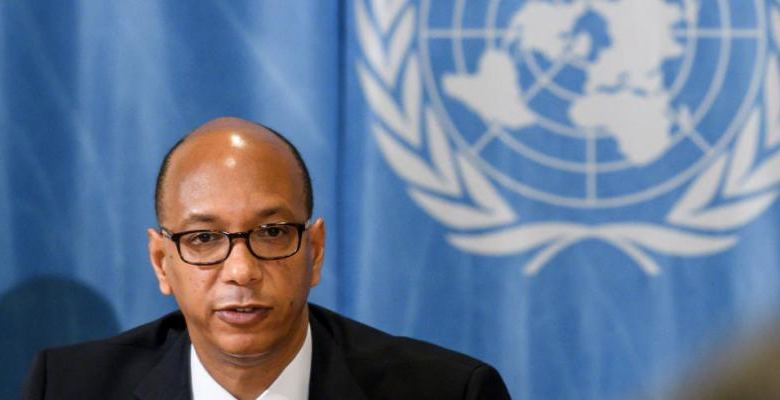DR Congo Calls For Sanctions Against Rwanda For Supporting M23 Rebels
A US diplomat has publicly acknowledged what the government of the DR Congo and human rights organisations have been saying for a long time, rebel groups in the eastern Congo are supported by neighbouring Rwanda.

The government of the Democratic Republic of Congo has called on the United Nations Security Council to impose punitive sanctions on Rwanda for supporting rebels of the March 23 (M23) movement who have been wreaking havoc in the eastern DR Congo.
The call comes on the heels of the declaration by Robert Woods, the United States Alternate Representative to the United Nations for Political Affairs, evoking the role of Rwanda in the resurgence of the M23 in eastern DR Congo after its defeat in 2013.
Mr. Woods declared this week that the violence visited on the eastern DR Congo by M23 “is unacceptable, and the United States calls on the armed groups to put an end to their attacks against the most vulnerable populations of the DR Congo. We also call on state actors to stop supporting these groups, notably assistance given by the Rwandan government to M23”.
Reacting to the declaration by the US diplomat, Tina Salama, spokesperson of President Felix Tshisekedi of the DR Congo said “The United States has cited Rwanda by name, calling on it to stop giving assistance to M23. It is finally clear that the US recognizes what the head of state has always said, namely, that our country is victim of Rwandan aggression”.
“This recognition must logically result in Security Council sanctions against Rwanda in conformity with the United Nations charter. And so, the diplomacy chosen by the president, permits, with much patience, to unravel the system of insecurity in the eastern DR Congo for which Rwanda has a big part of the responsibility. The Congolese people must thus remain mobilised”, Tina Salama said on 27 Oct.
This declaration is an indication that the Kinshasa authorities expect much from the international community in general and the United Nations Security Council in particular.
Addressing the UN General Assembly last month, President Felix Tshisekedi said his country expected the immediate/effective withdrawal of the M23 from occupied localities in the DR Congo, the return of displaced Congolese to these localities which are their homes and the unconditional cessation of support by the Rwandan army of the M23 terrorist group, according to the spirit and letter of the Luanda roadmap agreed upon by the DR Congo and Rwanda, as well as the successive declarations of the UN Security Council, the African Union Peace and Security Council, the East African Community and the Southern African Development Community (SADC).
President Tshisekedi had also called for increased pressure on Rwanda and the M23, which leaders are under UN sanctions, to respect the positions taken by the above-mentioned international organisations.
It should be remembered that since June this year, the US charge d’affairs in Kinshasa, Stephanie Miley, has openly evoked the presence of Rwandan troops on Congolese soil, a position which tallies with that of the Congolese government.
“We are extremely preoccupied by the recent clashes in the eastern DR Congo and by the presence of Rwandan forces on DR Congo territory. The provocative behaviours and the incendiary declarations must stop”, Stephanie Miley had declared.
On his part, Robert Wood has been prudent concerning the deployment of an East African Community (EAC) force in the DR Congo.
“The regional countries, in a bilateral manner and through the EAC, have also deployed soldiers to face the increasing insecurity in the eastern DR Congo. As these actions progress, it is imperative that they do not aggravate an already tense situation”, Mr. Woods declared yesterday.
“We demand that the regional leaders ensure that the bilateral and multilateral forces respect the human rights, give priority to the security of civilians and abstain from all illicit activities such as the extraction of natural resources. It is also essential that they coordinate with the armed forces of the DR Congo, the MONUSCO (United Nations Organisation Stabilisation Mission in the DR Congo), the UN humanitarian organisations and non-governmental organisations…”, Mr. Wood said.
Support Our Journalism
There are millions of ordinary people affected by conflict in Africa whose stories are missing in the mainstream media. HumAngle is determined to tell those challenging and under-reported stories, hoping that the people impacted by these conflicts will find the safety and security they deserve.
To ensure that we continue to provide public service coverage, we have a small favour to ask you. We want you to be part of our journalistic endeavour by contributing a token to us.
Your donation will further promote a robust, free, and independent media.
Donate HereStay Closer To The Stories That Matter




